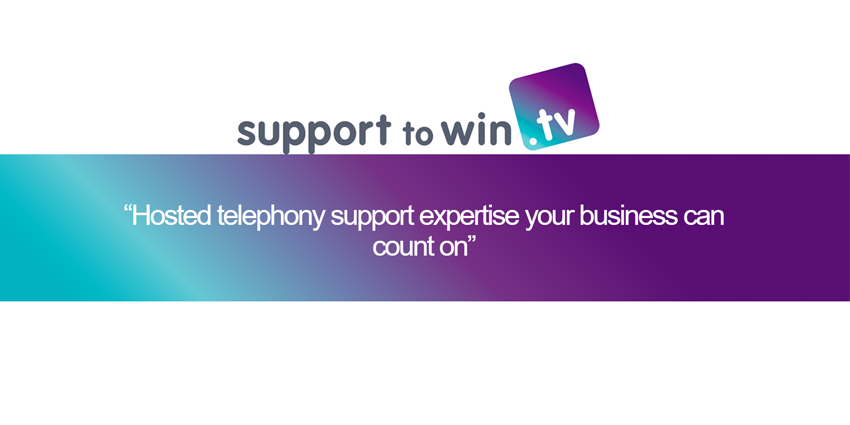Just as enterprise organisations must decide which cloud technology to implement into their workforce or pick a central collaboration hub for their team – service providers and channel partners in the UC space must also make and execute strategic moves that shift customers across platforms or from one cloud to another.
Support to Win has developed a suite of platform and PBX migration services that removes the complexity and resources needed to manage the transition for both the service provider and their customers. They are one of the leading companies providing the foundations for the current “Switching Culture”, standing out in the communication industry by giving channel partners, service providers and other businesses the support they need to migrate customer bases between technologies. We spoke to Simon Burckhardt, the Chairman of Support to Win, to learn more about platform migrations in the age of the cloud.
Who are Support to Win?

Support to Win is the managed services company born out of Train to Win, enabling the channel to adopt new technologies, win more business and consolidate services without distraction from their day-to-day business. And while Train to Win delivers telecoms-specific training to the telecoms sector (using their market and vendor expertise to provide a wide range of courses across sales, customer service and regulation), Support to Win offers the necessary telephony support and operational services which some telecoms companies have limited resource and/or expertise to deliver themselves. This ultimately enables Support to Win’s clients to win business and focus on the sale.
Support to Win’s go-to-market approach is along the lines of ‘Business as Usual’ operations, which includes everything from managed service provisioning to ongoing in-life support, and a dedicated Projects team that focuses on migration projects and ad hoc consultancy-based work.
“Most recently, and most interestingly for the growth that we saw in 2019, is the arrival of migration as a crucial product”
According to Burckhardt, during 2019, most of the evolution of the Support to Win brand came from the demand for migration services that help businesses move from on-premise into the cloud, or migrate between cloud platforms such as BroadSoft BroadWorks and Asterisk. “Some companies find a new cloud space that simply serves their needs better, while others need help to get all their customers onto the same environment after a merger or acquisition. Support to Win is uniquely positioned to help, due to our independent and agnostic approach to multiple vendors and platforms. We have years of experience across many platforms, drawn in part from the immense training heritage from the Train to Win business. This allows us to truly understand the gap between all the technologies customers are migrating to and from, and help our clients bridge that gap swiftly and safely.”
Cloud-to-Cloud Migrations
Although many people would assume that the biggest migration journey for businesses today is from on-premise to the cloud, Burckhardt told me that the Support to Win company actually deals more frequently with cloud-to-cloud migration. The revenue for the business more than quadrupled in 2019 thanks to cloud-to-cloud migration.
“A lot of things can trigger a cloud-to-cloud migration. Most of the reasons are positive. For instance, a merger or acquisition could require a business to bring newly acquired customer bases together on the same platform, so they can create the full value of the acquisition by realising synergies of only supporting one platform. Sometimes, it’s just a matter of changing strategies and trying something new. Some people are deciding that BroadWorks and BroadSoft platforms are no longer the right routes for them.”
In Vonage, the company where Simon was UK Managing Director before working with Support to Win, there was a large migration that took place in 2019, which involved moving away from BroadWorks and onto Vonage’s own IP-based cloud, Vonage Business Cloud. “This was a huge project for us, and it was based on the belief that customers would be better served by everyone using the same product. Support to Win proved to be an invaluable partner to Vonage in managing that large customer migration, ensuring customers were kept satisfied and churn was minimised.”
Some companies can be concerned about the future of certain platforms too. It’s possible for a brand to discover that they can’t access what they need with one cloud and that they need to consider new best-practice solutions. “It’s about making sure that you’re future-proof, with a cloud that’s suitable for both what you need now, and what you might need in the years to come.”
What is the Switching Culture?
Burckhardt noted that a big component of the growing demand for migration services is the “switching culture.” In other words, companies are becoming more comfortable about switching to different solutions to find the things that we need. What’s more, the marketplace itself is changing rapidly too. We at UC Today are hearing that Cisco is potentially going to go to direct sales with the Webex Calling Platform, which has created some nervousness in the marketplace.
“BroadSoft and BroadWorks have done a great job at fuelling trust in UC, but people are concerned about the changes to the ways that solutions are going to be delivered in the future. There are other platforms approaching the market that come from a digital omni-channel place that may be more flexible. We’re seeing service providers and resellers wanting to explore what other options might look like, and this means that migration services are becoming more essential.”
Simon noted that the migration process can be a very scary thing, particularly if you’ve always been on one platform. However, Support to Win can help with that, making sure that they provide customers with a completely objective business that can look at two platforms and make sure that every feature set can be replicated from one space to the next.
What Do You See Next for 2020?
There are a lot of opportunities for cloud growth and migration going forward into 2020. Microsoft Teams is a huge part of the marketplace that’s gaining a lot of growth right now. Microsoft is making some serious inroads in the move to the cloud, particularly as people continue to work in a multitude of different ways. As remote working and other kinds of work become more popular, businesses are realising that they need cloud environments that will suit a new style of the employee.
Burckhardt told me that he believes that there is going to be a lot more consolidation and growth in the marketplace going forward. There was a flurry of this consolidation in 2019, and this is likely to continue in 2020. Additionally, debates about the future of BroadWorks will continue, with companies deciding whether they need to remain with BroadWorks or try something new.
“The whole thing is being driven by the demand to diversify too. Every company needs to offer something unique today, and part of that means making sure you can migrate users properly”







